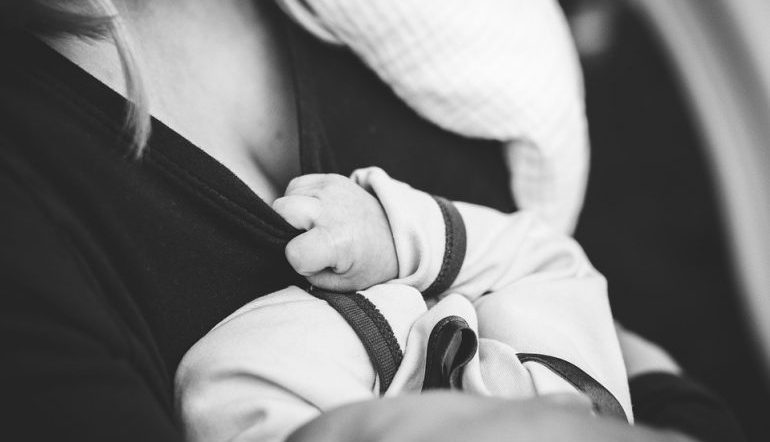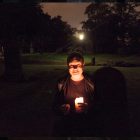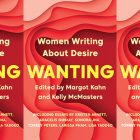Meaghan O’Connell’s Lessons in Parenthood
 Perhaps I’m not alone here, but as a woman without children (yet), I’ve always thought of stories of pregnancy and childbirth as a cross between how-to manuals and cautionary tales. It’s rare that a woman with a small child makes someone who hopes to become a mother feel better about the whole thing. When I hear about epidurals and sleep training, I want to ask women if there’s anything good about their newfound motherhood—and if so, why that’s never the story they tell. Warning the uninitiated about the tribulations of raising a small human seems to have become a pastime, yet it wasn’t until I read Meaghan O’Connell’s memoir, And Now We Have Everything: On Motherhood Before I Was Ready, that I realized new mothers are not telling their battle stories for the benefit of those without children. Whether their stories scare me or encourage me is irrelevant. Motherhood seems to make women feel simultaneously isolated from their old lives and overwhelmed in their new ones. The stories of the challenges make for good narratives, just as stories about all our hardships create more interesting narratives.
Perhaps I’m not alone here, but as a woman without children (yet), I’ve always thought of stories of pregnancy and childbirth as a cross between how-to manuals and cautionary tales. It’s rare that a woman with a small child makes someone who hopes to become a mother feel better about the whole thing. When I hear about epidurals and sleep training, I want to ask women if there’s anything good about their newfound motherhood—and if so, why that’s never the story they tell. Warning the uninitiated about the tribulations of raising a small human seems to have become a pastime, yet it wasn’t until I read Meaghan O’Connell’s memoir, And Now We Have Everything: On Motherhood Before I Was Ready, that I realized new mothers are not telling their battle stories for the benefit of those without children. Whether their stories scare me or encourage me is irrelevant. Motherhood seems to make women feel simultaneously isolated from their old lives and overwhelmed in their new ones. The stories of the challenges make for good narratives, just as stories about all our hardships create more interesting narratives.
O’Connell (no relation) opens the book with the intuition that she’s pregnant, a feeling that marks the beginning of her body calling the shots. “A baby was the thing we were trying to keep out,” she begins. “A baby was a consequence.” When this moment strikes, she’s on a bike ride with her fiancé, who calls for her to keep going. O’Connell says she felt sure of the sudden realization that she was pregnant. “I had no proof, no test, just this body that I’d presided over for 29 years, a mystery still,” she writes. There was the plan and then there was what actually happened. This dichotomy is a central force in O’Connell’s journey into parenthood—the C-section she didn’t plan to have, the radiant pregnancy Polaroids she never took of her in flowing floral prints, the prepregnancy friends from whom she thought she’d never grow apart. With each plan she ditches, O’Connell learns more and more to trust herself and the lessons she’s learning by breaking all her own rules.
When O’Connell first learns she’s pregnant, she and Dustin, her fiancé of only a week, feel unprepared to raise a child in the uncertainty of early adulthood, but O’Connell instinctively wants the baby the moment she is aware of him. The earliest stages of her pregnancy—telling her closest friends, going to doctors’ appointments, announcing it in an Instagram post—are fraught with a feeling of pretending and the fear of both giving birth to and losing the baby at any moment. O’Connell is acutely aware that when they created a life, they “created a death” too.
O’Connell’s fear and vulnerability are only magnified once she gives birth. “We were in the middle of what felt like an ongoing emergency,” she writes. “Endure the car crash of childbirth then, without sleeping, use your broken body to keep your tiny, fragile, precious, heartbreaking, mortal child alive. Rock, sway, bounce, pace, sing, hum — Dustin did anything to keep him from crying but it always came back to me, my swollen breasts, nipples scabbed over, milk dripping everywhere and the baby flailing.” One of the balms of O’Connell’s memoir is her restraint in giving advice. Instead, she catalogues her own guilt—her carefully laid plans for motherhood and her more chaotic reality—and the isolation built into American parenthood, which requires so much of parents without institutional support for the process.
Shortly after the baby is born, O’Connell decides she’s going to try to write in a coffee shop. She hasn’t been out of the house alone since the birth and has to time the escape between carefully timed feedings. Dustin is nervous the baby will cry and he won’t be able to feed him, but O’Connell is desperate to leave the house and write. Once she leaves, however, she can’t concentrate on her writing. She leaks milk. She feels terrible guilt. By avoiding advice and relying on engaging and fast-paced storytelling, O’Connell solves one of the greatest problems she identifies, the chasm between before and after a baby.
And Now We Have Everything is an important entry into both the canon of pregnancy and childbirth and the canon of excellent memoirs written by women more generally. As O’Connell finds her peace with her new life by the end of the memoir, much of the panic I feel hearing and reading stories of motherhood abates. O’Connell suggests it’s possible to meet fear with grace and humor, to rise to the occasion, and to show the kindness of letting ourselves off the hook.



